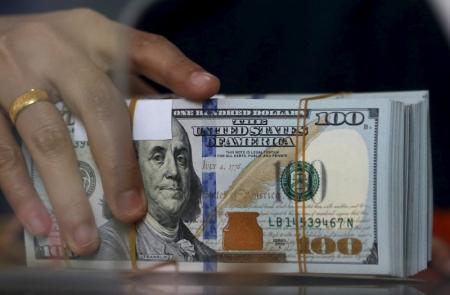
DIFC – Dubai, November 16, 2016 — While subdued US dollar supply in the context of prolonged lower oil prices remains a key challenge for corporates in Nigeria, especially those companies constrained by foreign exchange restrictions on certain imports, growth prospects over the next three years are attractive, Moody’s Investors Service said in a report today.
The report, “Corporates — Nigeria: US Dollar Scarcity Remains Key Challenge to Improvement in the Corporate Sector”, is available on www.moodys.com. Moody’s subscribers can access this report via the link at the end of this press release. The report is an update to the markets and does not constitute a rating action.
“Nigeria is still undergoing a severe economic realignment to adjust to lower oil prices and the knock-on effect on its US dollar oil exports, which have led to reduced US dollar supply and lower GDP growth,” said Aurélien Mali, a Moody’s Vice President and local market analyst for the Government of Nigeria.
“The naira’s depreciation by nearly 60% in June partially cleared accumulated US dollar demand and stabilised foreign currency reserves. However, access to US dollars through official channels remains challenging for some companies.” said Douglas Rowlings, a Moody’s Assistant Vice President and the report’s co-author.
Foreign capital inflows into Nigeria are unlikely to rebound strongly as the existence of a parallel market acts as a deterrent. Investors are hesitant to invest capital into Nigeria as long as there is uncertainty around the propensity for a further devaluation of the naira versus the US dollar.
Moody’s expects foreign investment inflows to continue to be constrained until the parallel market Naira per US dollar exchange rate moves closer to the official exchange rate. The supply of US dollars will improve over time as real growth rates pick up, which will be supported by investment by multinational corporates wishing to further strengthen their domestic position in Nigeria or establish a presence in the country. This, in turn, should be underpinned by improving GDP growth.
The foreign exchange limitation continues to pose challenges for corporates’ day-to-day operations, capital expenditure (capex) and financing activities. Corporates servicing US dollar debt commitments will continue to have priority access to US dollars but will need to issue requests at least three months in advance to be assured of requisite availability, while corporates requiring US dollars for their purposes, such as capex outside Nigeria, will continue to face difficulties in obtaining sufficient US dollars.
Another source of US dollars through a rebound in oil production could support the reserves in the future, but it is hypothetical at this stage. If such a development were to occur at the current exchange rate, it could balance supply and demand for US dollars in Nigeria. This, in turn, would lead to the eclipsing of the parallel market, which would encourage net portfolio inflows and should ensure that the official US dollar supply meets the total demand from Nigeria’s economy.
Looking ahead, growth prospects remain attractive for corporates over the next three years.
Although Moody’s expects Nigerian consumers’ purchasing power to remain under pressure over the next 18 months, both domestic and foreign investment is expected to take advantage of Nigeria’s compelling economic fundamentals and are likely to rebound once the economy has fully stabilised.
Nigeria remains the largest economy in sub-Saharan Africa on a purchasing power parity basis, offering a sizeable market for corporates. A growing middle class – both in percentage and absolute terms – and increasing consumer wealth levels will continue to support higher levels of discretionary income expenditure.
The report is available to Moody’s subscribers at
http://www.moodys.com/viewresearchdoc.aspx?docid=PBC_1044666
NOTE TO JOURNALISTS ONLY: For more information, please call one of our global press information hotlines: New York +1-212-553-0376, London +44-20-7772-5456, Tokyo +813-5408-4110, Hong Kong +852-3758-1350, Sydney +61-2-9270-8141, Mexico City 001-888-779-5833, São Paulo 0800-891-2518, or Buenos Aires 0800-666-3506. You can also email us at mediarelations@moodys.com or visit our web site at www.moodys.com.
This publication does not announce a credit rating action. For any credit ratings referenced in this publication, please see the ratings tab on the issuer/entity page on www.moodys.com for the most updated credit rating action information and rating history.
Douglas Rowlings
Asst Vice President – Analyst
Corporate Finance Group
Moody’s Investors Service Middle East Limited
Gate Precinct 3, Level 3
P.O. Box 506845
DIFC – Dubai
UAE
Telephone: 00971 4237 9536
David G. Staples
MD – Corporate Finance
Corporate Finance Group
Telephone: 00971 4237 9536
Releasing Office:
Moody’s Investors Service Middle East Limited
Gate Precinct 3, Level 3
P.O. Box 506845
DIFC – Dubai
UAE
Telephone: 00971 4237 9536